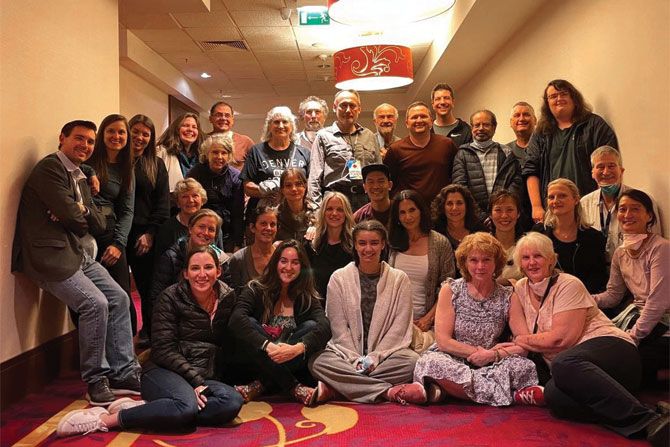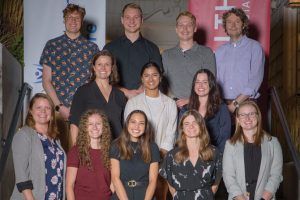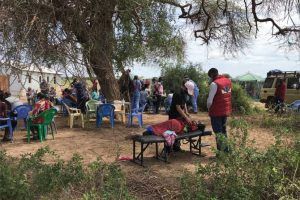Feature Photo: The team from International Medical Relief in Warsaw, Poland.
On February 23, 2022, very few people in the western world knew what the Ukrainian flag looked like. A request to describe anything about it would be met with blank stares, except for those who envisioned that it may still resemble the flag of the Soviet Union, hammer and sickle over a dark red background. I dare say that even most Polish people, immediate Ukrainian neighbors to the west, would have no idea. But once Russia invaded Ukraine for no legitimate reason outside of Putin’s selfish maniacal narcissism, millions in the western world immediately recognized the depiction of the blue sky over the fields of golden grain representing the country I love.
I lived in Ukraine from 2000-2002 as a missionary for The Church of Jesus Christ of Latter-Day Saints. Thus Ukraine feels like my country, and Ukrainians like my people. Given the millions of refugees flooding into Europe, a majority of whom are coming through Poland, and the immense need that creates, I wanted to help in person. As a physician, it was an easy decision on the best way to contribute – offer medical assistance.
I spent two weeks in Poland at the end of May and the beginning of June. My first week was with the group International Medical Relief at a former expo center repurposed into a shelter in Warsaw. We staffed a clinic at the center where any refugee could seek care for whatever they needed. The resources were modest, but we helped many people with chronic conditions, acute concerns, and medications.
While the center could accommodate many thousands of people, there were only around two thousand during my stay. The influx of displaced Ukrainians had slowed down by this point. Many who had not already gone to another country were planning to return to Ukraine.
My second week was supposed to be my return to Ukraine, but it wasn’t to be. The circumstances surrounding the “mission” in Ukraine changed (as is common in war-torn areas, of course), meaning that I was unable to accompany August Mission into the country. Instead, I went to Krakow to assist in clothing donations and other similar activities.
However, I wanted to ensure that I was not acting from an arrogant attitude of privilege, where I am the great American coming to fix everything and save everyone, as often exists in such humanitarian efforts. I approached this more as a loving brother and concerned neighbor to help those in need. I intended to come strictly for the Ukrainian people, to meet some of their needs in any small way I could. Not only have they inspired me, but I believe they met many of my needs, as well.
The first refugee woman I met arrived at the center just the day before with her daughter-in-law and grandson. Her husband had been killed just days before when Russian shelling destroyed their apartment complex. Despite no previous military training, her son was now fighting in the war. She understandably broke down as she was telling me. I simply held her hand and listened as best I could, conversing with her using my rusty Russian language skills.
I saw many similar things throughout my two weeks. I witnessed a large group of Ukrainians outside flinch with a stab of fear on their faces from a plane flying over. I met a medical student displaced from her studies and helped her volunteer at the clinic. I met a young teenager who was in the hospital when the bombing began, and he was separated from his mother for a couple of days. Since reuniting with his mother, he turned his initial terror into being a volunteer interpreter at the clinic. One woman, who misplaced her cell phone, had a severe emotional breakdown because, without her phone, she wouldn’t know if her husband was okay (we found the phone shortly after that).
And in response, I saw immense support for these struggling people. The Polish people supported the millions of incoming Ukrainians more than anyone would expect. They provided huge amounts of support in infrastructure, financial relief, and volunteer hours. As of July, nearly eight million Ukrainians had fled the terror of war into other countries, 90% of whom were women and children. Over half of these refugees went to Poland. Another eight million Ukrainians were displaced within their homeland. Countries around the world supported getting visas and other relief for the refugees. Every Ukrainian I spoke with was immensely grateful for the world’s help. One woman, with tears in her eyes, said that she didn’t think anyone in the world knew that Ukraine existed.
Ukrainians are among the most resilient people in the world. They have the perfect combination of humility and a willful attitude that has led them to defend their country much more effectively and ferociously than Russia expected. One of the volunteer translators at the center showed me a picture of his eight-year-old niece in Kyiv. She was standing on the charred remains of a burned Russian tank in the middle of the city, flexing her arms with a look of triumph on her face. That is what the Ukrainian spirit truly is and why so many throughout the world now see the Ukrainian flag as such sweet inspiration.
Those interested in supporting Ukrainian refugees in Utah, please go to https://utahukrainians.org to donate time, money, or items. Thank you.
Kyle Bradford Jones, MD, FAAFP, is an Associate Professor at the Department of Family and Preventive Medicine at the University of Utah and author of Fallible: A Memoir of a Young Physician’s Struggle with Mental Illness and Hospital.
Feature Photo: The team from International Medical Relief in Warsaw, Poland.
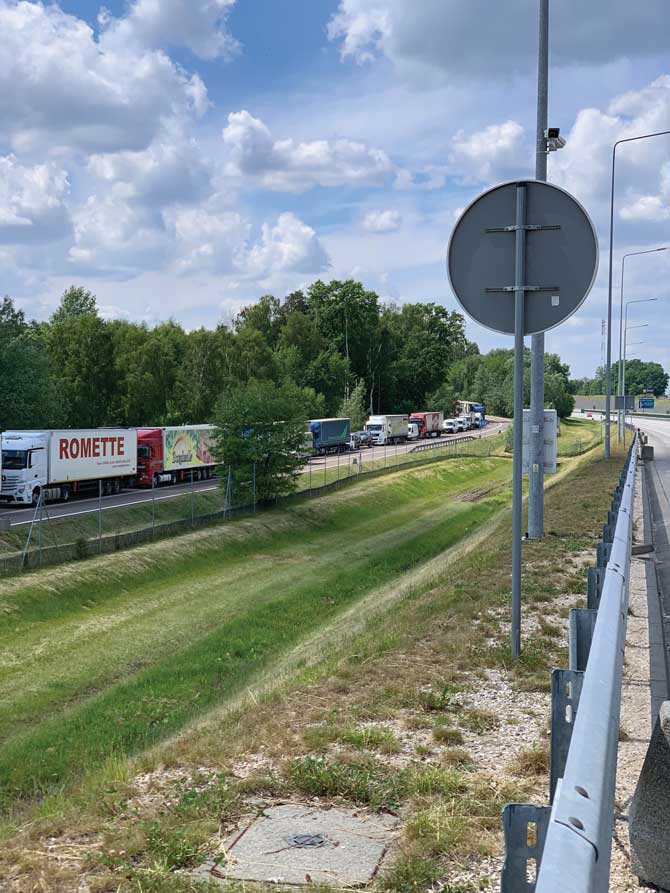
A line of semi trucks full of donated items in a logjam over a mile long waiting to get into Ukraine.
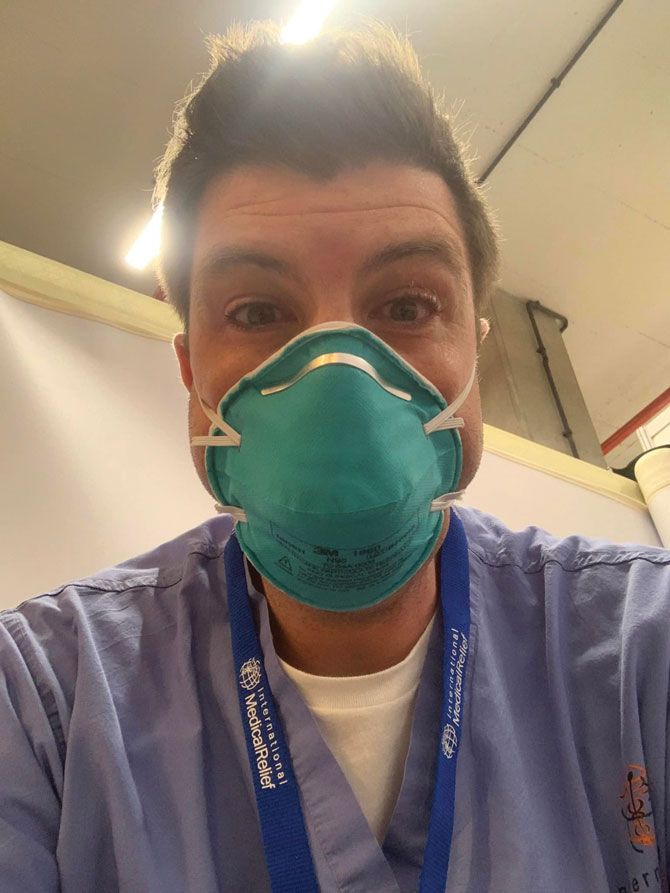
Dr. Jones masked up and ready to help.



